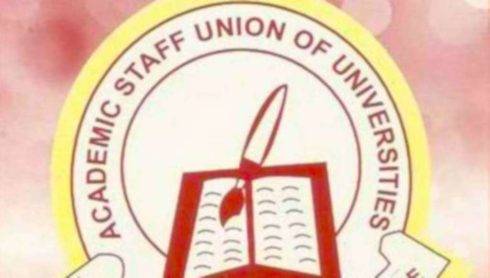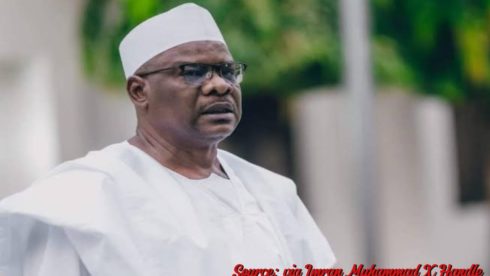ASUU’s recent National Executive Council meeting at Obafemi Awolowo University in Ile-Ife has stirred fresh tensions in Nigeria’s academic landscape. With a two-week ultimatum issued to the government, ASUU demands the reinstatement of public universities’ governing councils, dissolved in June 2023, and a resolution to members’ remuneration concerns. Failure to address these issues could ignite another strike, a prospect that has left stakeholders on edge.
The threat of strike action by ASUU is not new. Over the past decades, Nigeria’s academic community has endured 16 strikes, each leaving a significant mark on the educational system. The February 2022 strike, the most recent before this current ultimatum, underscored the disruptive nature of such actions, halting academic activities for an extended period. Compounding matters, the government’s “no work, no pay” policy has exacerbated financial strains for lecturers, leaving many unpaid during prolonged strikes.
A Glimmer of Hope: President Tinubu’s Promise
Despite the looming threat of another strike, there’s a glimmer of hope among stakeholders with President Bola Tinubu’s recent commitment to addressing the lingering issues. Tinubu’s administration’s decision to pay two months’ worth of salaries from the previous eight months of withheld payments signals a potential shift in the government’s approach. Stakeholders like Henry MD express optimism, believing that President Tinubu’s leadership will navigate a resolution to prevent further disruptions in academic activities. As the clock ticks down on ASUU’s ultimatum, all eyes are on the government’s response and its implications for Nigeria’s higher education landscape.
Concerns Arise Over University Autonomy Amidst Dissolution of Governing Councils
The dissolution of governing councils in June 2023 has stirred significant concerns regarding university autonomy and the absence of a regulatory body. This move has sparked debates about the governance structure of public universities and the potential ramifications on academic freedom and institutional integrity.
ASUU President, Prof. Emmanuel Osodeke, has highlighted the repercussions of this development, stating that the absence of governing councils has paved the way for “illegalities” within public universities. Furthermore, Dr. Abednego Silverstone, an Education Researcher, has shed light on the concerning trend of some council members overstepping their mandates and interfering with the daily operations of universities. These observations underscore the urgent need for reinstating effective governing bodies to uphold the principles of academic governance and safeguard the autonomy of universities.
Government Response
In response to ASUU’s ultimatum and mounting concerns, the National Universities Commission (NUC) has assured stakeholders of ongoing efforts to reconstitute the governing councils. Acting Executive Secretary, Chris Maiyaki, has acknowledged the complexities involved in this process, emphasizing the necessity of appointing qualified and experienced individuals to these pivotal positions. Maiyaki reassured the public that the government is diligently working to identify suitable candidates with the requisite expertise and integrity to serve on these councils.
Despite these assurances, ASUU remains skeptical, citing the government’s track record of unfulfilled promises. The academic union continues to advocate for transparency and accountability in the reconstitution process, underscoring the importance of ensuring that the best interests of the academic community are prioritized. As stakeholders await further developments, the spotlight remains on the government’s commitment to restoring university autonomy and fostering an environment conducive to academic excellence.
Education Experts Advocate Alternatives to ASUU Strikes for University Progress
In the realm of Nigerian higher education, the absence of governing councils poses a significant challenge to university advancement. While strikes have been a customary tool for ASUU (Academic Staff Union of Universities) to push for their demands, education experts stress the need for alternative strategies to foster progress.
Dr. Folashade Akinbi, an esteemed Education Policy Analyst, asserts that historical data indicates strikes alone have failed to produce the desired outcomes. Instead, she advocates for a paradigm shift towards negotiation and collaboration between ASUU and the government. According to Dr. Akinbi, “Dialogue and collaboration are paramount in finding sustainable solutions to the issues plaguing our universities.”
Amidst the impasse, alternative strategies have emerged as viable options. One such approach involves leveraging public awareness campaigns to garner support for ASUU’s demands. By elucidating specific grievances through targeted initiatives, ASUU aims to rally public sentiment in favor of their cause. Additionally, international collaboration presents a promising avenue for exerting pressure on the government. By forging alliances with academic unions abroad, ASUU seeks to amplify its advocacy efforts on the global stage, thereby augmenting its negotiating power.
Student Well-being Amidst Academic Turmoil
While ASUU and the government engage in negotiations, Nigerian students find themselves caught in the crossfire, bearing the brunt of academic disruptions caused by strikes. As the proverbial grass suffering amidst elephants’ strife, students endure upheavals that jeopardize their academic pursuits and future prospects.
Olamide Oyebade, a fervent Student Union activist, voices the collective frustration of students grappling with the recurrent specter of strikes. “We’re weary of being pawns in these disputes. Our primary focus should be on our studies,” laments Oyebade. Indeed, the recent threat of yet another ASUU strike underscores the urgency for a more sustainable resolution to the systemic issues plaguing Nigeria’s public universities.
In light of the adverse impact on students, stakeholders must prioritize the formulation of long-term solutions that uphold the integrity of academic calendars and safeguard students’ educational journeys. It is imperative for ASUU, the government, and all pertinent stakeholders to embrace dialogue, collaboration, and innovation in charting a path forward that fosters academic excellence while nurturing the well-being of Nigeria’s future leaders.
Table of Contents
Discover more from OGM News NG
Subscribe to get the latest posts sent to your email.













